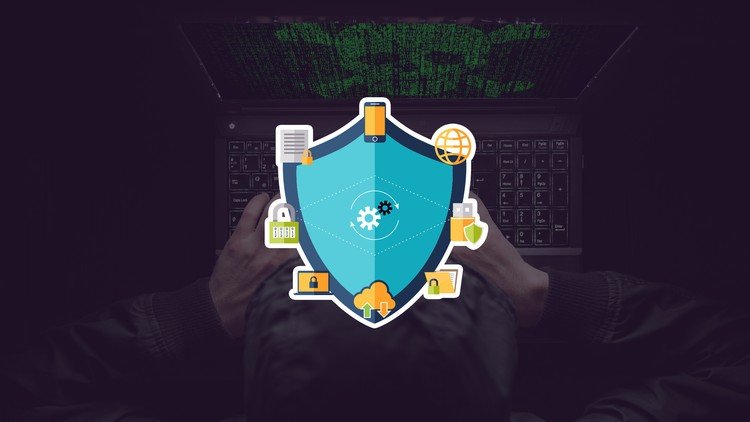As technology develops, so will the dangers on the internet. In this article we will see 10 tips for safe navigation on the Internet.

1. Keep your personal information in your business space limited
Potential employers or clients do not need to know your personal relationship or home address. They need to know about your experience and professional background, as well as how to get in touch with you. You will not give purely personal information to strangers individually and you will not share it with millions of people on the internet.
2. Enable your privacy settings
Marketing people love to know everything about you, just like hackers. They can both learn a lot from your browsing and use of social media. But you can protect your personal information. According to Lifehacker, both web browsers and mobile operating systems have settings available to protect your online privacy. Major sites like Facebook also have privacy settings available. These settings are sometimes (intentionally) difficult to find because companies want your personal information on the value of marketing. Make sure you have these privacy settings enabled, and make sure they are enabled.
3. Safe browsing practice
You would not choose to walk in a dangerous neighborhood so do not visit dangerous neighborhoods on the internet. Cybercriminals use enticing content as bait. They know that people are sometimes tempted by questionable content and can fall victim more easily. Resist the urge and do not allow hackers to gain access to your data
4. Make sure your internet connection is secure by using a trusted VPN
Όταν συνδέεστε σε δημόσιο δίκτυο, για παράδειγμα χρησιμοποιώντας μια δημόσια σύνδεση Wi-Fi, δεν έχετε άμεσο έλεγχο της ασφάλειάς του. Οι εμπειρογνώμονες στον τομέα της ασφάλειας στον κυβερνοχώρο ανησυχούν για "endpoints" - τα μέρη όπου ένα ιδιωτικό δίκτυο συνδέεται με τον έξω κόσμο. Το ευάλωτο σημείο είναι η τοπική σύνδεση στο Διαδίκτυο. Βεβαιωθείτε ότι η συσκευή σας είναι ασφαλής και αν όχι, μην συνδέεστε σε ανασφαλή σημεία πρόσβασης στο διαδίκτυο διότι υπάρχει κίνδυνος ακόμα και να σας κλέψουν τον τραπεζικό σας λογαριασμό
To further improve the security of your web browsing, use a secure connection VPN (virtual private network). VPN allows you to have a secure connection between your device and an internet server that no one can monitor or access the data you exchange.
5. Watch what you download
A top target of cyber criminals is to deceive you by downloading malware - programs or applications that carry malware or try to steal information. This malware can be disguised as an application: anything from a popular game to something that controls traffic or weather. Do not download applications that look suspicious or come from a site you do not trust.
6. Select Strong Passwords
The passwords είναι ένα από τα μεγαλύτερα αδύναμα σημεία σε ολόκληρη τη δομή ασφάλειας του διαδικτύου. Το πρόβλημα με τους κωδικούς πρόσβασης είναι ότι οι άνθρωποι τείνουν να επιλέγουν εύκολους για να τους θυμούνται (όπως "password" και "123456"), οι οποίοι είναι επίσης εύκολο για τους χάκερς να τους μαντέψουν. Επιλέγουμε λοιπόν δύσκολους και μεγάλους κωδικούς που να μην μπορεί ο θύτης να τους μαντέψει. Το λογισμικό διαχείρισης κωδικών πρόσβασης μπορεί να σας βοηθήσει να διαχειριστείτε πολλούς κωδικούς πρόσβασης, ώστε να μην τους ξεχάσετε. Ένας ισχυρός Password is unique and complex — at least 15 characters long, mixing letters, numbers and special characters.
7. Shop online from secure sites
Every time you make a online shopping, you will need to provide credit card or bank account information. Only provide this information to sites that expire secure and encrypted links. As Boston University notes, you can identify secure sites by looking for an address that starts with https: (S means secure) and not just http: They can also be highlighted by a padlock icon next to the address bar.
8. Watch what you post
The Internet it has no way to delete it. Any comment or image you post online can stay online forever, because removing the original (say, from Twitter) δεν αφαιρεί αντίγραφα από άλλα άτομα. Δεν υπάρχει τρόπος να "πάρετε πίσω" μια παρατήρηση που δεν θα θέλατε να κάνετε ή να απαλλαγείτε από αυτό το ενοχλητικό selfie που πήρατε σε ένα πάρτι. Μην βάζετε τίποτα στο διαδίκτυο που δεν θα θέλατε να δουν οι γονείς σας ή ένας μελλοντικός εργοδότης σας
9. Be careful with those you know online
The people you meet online are not always who they claim to be. Indeed, they may not even be real, or they may be different from what they introduce themselves to. The fake social media profiles are a popular way for hackers to "loosen" unwary internet users and exploit their "pockets". Be as careful and sensible in your online social life as you are in your personal social life.
10. Keep your antivirus program up to date
The security software που χρησιμοποιείτε στο διαδίκτυο δεν μπορεί να σας προστατεύσει από κάθε είδους απειλή, αλλά θα εντοπίσει και θα αφαιρέσει τα περισσότερα κακόβουλα προγράμματα - αν και πρέπει να βεβαιωθείτε ότι είναι πάντα ενημερωμένο. Φροντίστε να το αναβαθμίζετε με τις τελευταίες διαθέσιμες ενημερώσεις και να ενημερώνετε και το λειτουργικού σας συστήματος και όλες τις εφαρμογές που χρησιμοποιείτε. Παρέχουν ένα ζωτικό επίπεδο ασφάλειας για εσάς όλα αυτά.
Follow these 10 basic internet security rules and you will avoid many of the unpleasant surprises hidden in the internet and cyberspace in general.





